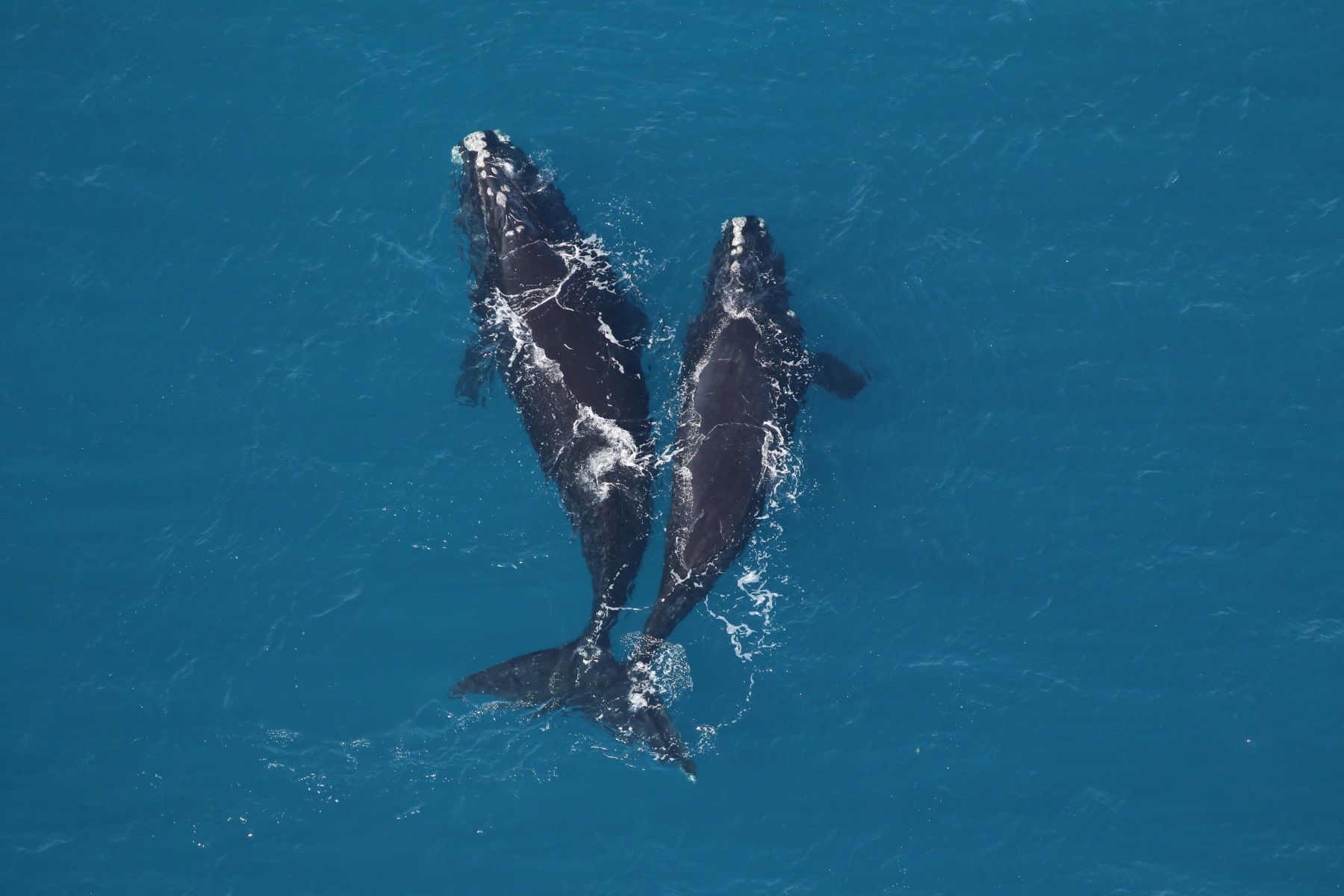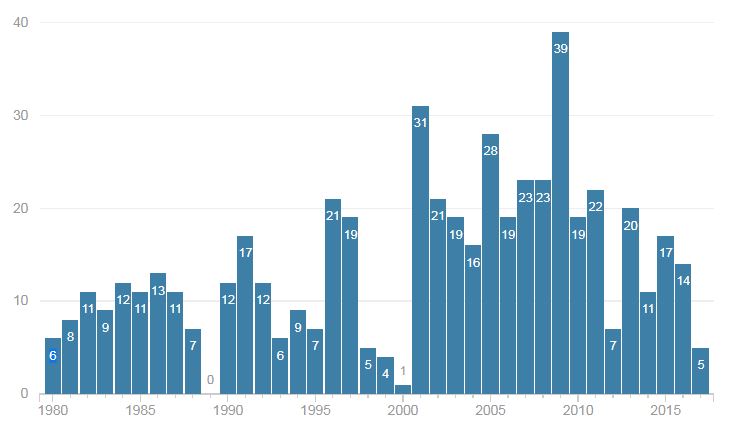Right Whale Season In Southeast Ends Without A Single Calf Sighting

A 9-year-old right whale, left, and a smaller right whale were spotted 30 miles east of Jekyll Island on Feb. 15. The calving season for North Atlantic right whales has ended, and no calves were found.
Sea to Shore Alliance, taken under NOAA research permit 20556
The calving season for North Atlantic right whales is now over without a single calf turning up.
The endangered whales have their babies in the winter off the coasts of Georgia and North Florida, only this year, researchers didn’t find any, and there’s concern about the future of the species.
There are about 450 North Atlantic right whales left. They were driven nearly to extinction by the whaling industry. While the population has been slowly growing, the past year has been terrible for them.
Clay George, a wildlife biologist with the Georgia Department of Natural Resources, said the lack of calves is unprecedented in recent years.

“The fact that the number of calves that are being seen has dropped off is certainly very concerning,” he said. “But we’re much more concerned about the number of whales that have been dying in recent years.”
READ MORE: The Search For Right Whales Off The Georgia Coast
In the last 12 months, 18 dead right whales have been spotted, about 4 percent of the entire species. Several of those were tangled in fishing gear.
The whales spend summers off the coast of New England.
Last year, many turned up farther north in Canada, which is where 12 were found dead. Canada recently announced new protections for the whales.
Right whale experts say the females aren’t living as long, and they’re giving birth less often. Climate change could be having an effect on their food.
But the most acute problems, researchers say, come from fishing gear and ships. Whales get tangled in strong ropes used in fishing, and they get hit by boats.
George said he thinks the whale population could recover if those issues were resolved.
“Right whales, we think, can live probably 100 years or more, so you really have to look at it as a long game,” he said.







